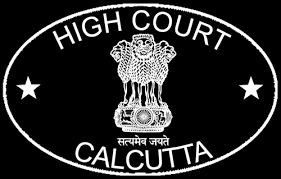Ranjit Singh, J.@mdashSohan Singh was working as Inspector, Co-operative Societies and was appointed as an Administrator of Bhattian Jadid Co-operative Agricultural Service Society, Bhattian in July/August, 1978. He was required to supervise the work for a period of three months and make arrangement for election of the new Managing Committee. During his tenure as an Administrator, Society enrolled some members and they were also advanced some loans. Three of them did not repay the loan. Subsequently, respondent-plaintiff was promoted as Inspector and posted in the office of defendant No. 3, i.e., Deputy Registrar, Co-operative Societies, Ludhiana. The Society passed a resolution for making reference for arbitration against the respondent-plaintiff and Hari Singh Inspector was appointed as Arbitrator. It is alleged that illegal ex-parte award was procured against the respondent-plaintiff, though there was no dispute under Sections 55/56 of the Punjab Co-operative Societies Act between the respondent-plaintiff and the Society. Respondent-plaintiff was also placed under suspension w.e.f. 6.6.1979 and enquiry was instituted against him. He accordingly filed a suit saying that the institution of enquiry was wrong, illegal, without jurisdiction, specially so in the background that the arbitration proceedings had already been held against him. Prayer was also made for restraining the appellants to enforce the ex-parte award and from holding the enquiry.
2. The appellants contested the suit challenging the jurisdiction of the court to try the same. Pleas of bar of limitation and mis-joinder of causes of action were also made, besides raising the plea of estoppel. Factual position was admitted in regard to the appointment of the respondent-plaintiff as Administrator of the Society. Allegation was that the respondent-plaintiff had enrolled three bogus members and had advanced loans to them while acting as Administrator. Total amount of loan advanced was Rs. 12,416/-. It was stated that this amount stood embezzled. The appellants had also conceded that the arbitration reference was held against the respondent-plaintiff and also the present action under the Punishment and Appeal Rules. The proceedings being held against the respondent-plaintiff were justified.
3. The Trial Court proceeded on the following issues:
1. Whether the plaintiff is entitled to the declaration and injunction as prayed for? OPP.
2. Whether orders initiating disciplinary proceedings are illegal, without jurisdiction? OPP
3. Whether the suit is not maintainable under the law? OPD
4. Whether Civil Court has no jurisdiction to try the suit? OPD
5. Whether no valid notice u/s 80 C.P.C. has been served upon the defendants? If so its effect? OPD
6. Whether there can be no estoppel against the operation of the statute or statutory rules? OPD
7. Whether the suit is barred by law of limitation? OPD
8. Whether the suit is bad for non-joinder of necessary parties? OPD
9. Whether defendant Nos. 2 to 4 are not legal entities? If so its effect? OPD
10. Whether the suit is premature as alleged in para No. 10? If so its effect? OPD
11. Whether the suit is not maintainable u/s 84 of the Act as alleged in para No. 10 of the preliminary objection? OPD
12. Relief.
4. The suit was dismissed against which respondent-plaintiff filed an appeal. The Appellate Court, however, reversed the findings of the Trial Court and has held that the acts and omissions attributed to the respondent-plaintiff for taking action against him under the Civil Services Rules were not connected with his duties as a public servant as he had committed these acts while acting as Administrator of the Society appointed under the Punjab Cooperative Societies Act. It was accordingly viewed that proceedings under the Civil Services Rules for the lapses could not legally be taken against him.
5. When the case came up for hearing on 8.4.2010, the same was adjourned to enable the State counsel to find out about the present status of the respondent-plaintiff. This was in order to ascertain if he was still in service or not to see if there is need to go into this question of law in regard to jurisdiction of the appellants to deal with the case against the respondent-plaintiff while he had acted as the Administrator in the Co-operative Society. State counsel points out that the respondent-plaintiff has since retired from service and is in receipt of pension. The permission to proceed against the respondent-plaintiff for a disciplinary action at this stage obviously would not be fair. Accordingly, without going into the question of law as formulated as to the fact whether the disciplinary proceedings could be initiated against respondent-plaintiff for his misconduct/acts while acting as an Administrator of a Co-operative Society is left open. No useful purpose, at this stage, would be served to decide this question of law.
6. In view of this position, the Regular Second Appeal is dismissed without expressing any opinion on the question of law.

